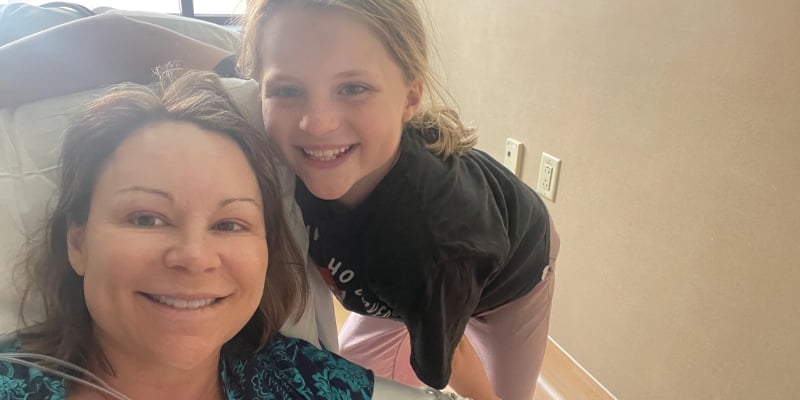Jennifer Franklin (BSN, ’07) knew a master’s degree would make her a better nurse. She just never thought it would happen so fast.
Only weeks into her College of Nursing Veteran and Military Health Care (VMHC) program, Franklin wrote a note thanking its creator, Professor Mona Pearl Treyball, PhD.
“This program is changing my practice as a nurse and how I see my patients,” Franklin wrote to Pearl Treyball, a retired Air Force colonel.
“So I wanted to say thank you for what you do, and thank you for your service,” said Franklin, whose words of gratitude come just in time for Veterans Day (Nov. 11), a federal holiday set for honoring our military service men and women.
Nurse: VA program should grow beyond campus
Franklin’s not the first nurse transformed by the VMHC program, which has gained national attention for its innovation. Since its 2015 inception, the program has grown in enrollment and scope, with about 70 students taking courses in a variety of track options.
Pearl Treyball will launch a Doctor of Nursing Practice (DNP) program next fall, she said.
Given the size of the veteran population (nearly 20 million nationwide), and veterans’ unique health issues, Franklin hopes the program continues growing, even beyond the University of Colorado Anschutz Medical Campus borders.
“I absolutely think that this program should be implemented everywhere,” she said. “Nursing schools don’t teach you how to take care of veterans, which can bring completely different challenges.”
From Agent Orange to PTSD, lessons target veteran care
Franklin, who remembers dreaming of becoming a nurse at age 5, comes from a family with a long military history and frequently cares for some of the 400,000 veterans who live in Colorado. Even with a family history of military service (including grandfather, father, husband and now son), Franklin has found the educational experience profound, she said.
“While I will never understand it, not having lived it, I’m more aware of what our veterans go through,” she said.
Already, lessons on Agent Orange and Post Traumatic Stress Disorder (PTSD) have changed Franklin’s care of her military-touched patients, she said.
Franklin told Pearl Treyball about an encounter with a Vietnam veteran who had cancer and had brought up Agent Orange, the highly toxic herbicide the U.S. military used in chemical warfare during the Vietnam War. Numerous studies have since linked Agent Orange to a string of cancers and other diseases.
Classes enhance veteran appreciation, nurse says
“I have patients that have talked about how they were sprayed with it and ate food and drank water contaminated with it,” Franklin said. “Now I can talk with them about it. I take their hands and thank them for their service. Before this class, I know I didn't appreciate the significance of Agent Orange like I do now.”
Franklin also frequently sees patients with PTSD who rely heavily on service dogs. “We talk about how they are extremely connected and how their dogs help them with their PTSD and how people don't understand,” said Franklin, who recently completed an assignment related to the emotional support of service dogs.
“This program is opening my eyes. Everything that I am learning, I am seeing in my patients,” Franklin said. Her new knowledge allows her to treat patients better and refer them to valuable resources, she said.
“This is going to make me a better nurse. Hopefully, I can better help my patients and effect change.”


